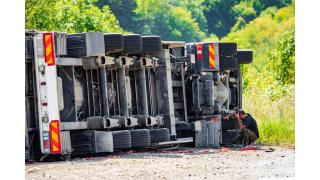Federal trucking regulations are designed to minimize the risks associated with commercial truck operations and protect the safety of all road users. These trucking safety regulations cover a wide range of topics, including driver qualifications, hours of service, vehicle maintenance, and hazardous materials transportation.
For more information about commercial vehicles as well as how a truck accident attorney in New Mexico can help you, continue reading along.
Understanding the Impact of Commercial Trucks on New Mexico Highways
In New Mexico, there has been a concerning increase in dangerous driving. Back in 2015, The Las Cruces Sun News published a report indicating that New Mexico had the second-worst drivers in the entire country. This ranking took into account factors such as high rates of drunk driving and careless driving, among other issues. In previous years, New Mexico had been ranked 19th for having bad drivers, indicating that this problem has escalated in recent years.
On top of that, about 3% of all
car accidents in New Mexico involve commercial vehicles. Out of the approximately 43,000 car accidents that happen each year in New Mexico, around 1,400 of these incidents include semi-trucks. What's alarming is that accidents involving semi-trucks in New Mexico are four times more likely to result in fatalities compared to accidents that don't involve these large trucks.
Commercial truck accidents can also cause significant economic damage on New Mexico roads. In 2022, the cost of commercial truck crashes in New Mexico was estimated to be over $1 billion. This includes the cost of property damage, medical expenses, and lost wages.
Key Federal Regulations Governing the Trucking Industry
The FMCSA is the primary federal agency responsible for regulating the trucking industry. The FMCSA's regulations cover a wide range of topics, including:
Driver qualifications: All commercial truck drivers must obtain a commercial driver's license (CDL). CDL requirements include passing a written test, a skills test, and a background check.
Hours of service: Federal trucking regulations limit the number of hours that drivers can work in a day and a week. These regulations are designed to prevent driver fatigue, a major contributing factor in truck accidents.
Vehicle maintenance: Commercial trucks must be properly maintained to ensure that they are safe to operate. The FMCSA requires truck owners and operators to inspect and maintain their vehicles on a regular basis.
Hazardous materials transportation: Hazardous materials must be transported in accordance with strict safety regulations. The FMCSA requires truck drivers to be trained on how to safely transport hazardous materials and to properly label and secure their cargo.
Safety Compliance and Inspections: Protecting New Mexico Communities
The FMCSA and other law enforcement agencies conduct regular inspections of commercial trucks to ensure that they comply with federal regulations. These trucking safety inspections can take place at roadside checkpoints, weigh stations, and truck terminals.
If a truck is found to be out of compliance, the driver may be issued a citation and/or placed out of service. In addition, the FMCSA can take enforcement action against trucking companies that have a poor safety record.
The Role of Federal Agencies in Enforcing Trucking Regulations
In addition to the FMCSA, other federal agencies play a role in enforcing trucking regulations. These agencies include:
National Highway Traffic Safety Administration (NHTSA): The NHTSA sets safety standards for commercial trucks and other vehicles. The NHTSA also investigates truck accidents and develops programs to reduce truck-related fatalities and injuries.
Occupational Safety and Health Administration (OSHA): OSHA oversees the safety of workers in the trucking industry. This includes developing regulations for loading and unloading cargo and ensuring that workers have access to proper safety equipment.
Environmental Protection Agency (EPA): The EPA regulates the transportation of hazardous materials. The EPA also sets standards for emissions from commercial trucks.
Benefits of Strict Trucking Regulations for New Mexico Residents
Strict trucking safety regulations benefit New Mexico residents in several ways. These benefits include:
Reduced risk of truck accidents: Federal trucking regulations are designed to minimize the risks associated with commercial truck operations and protect the safety of all road users. By enforcing these regulations, the FMCSA and other law enforcement agencies help to reduce the number and severity of truck accidents.
Lowered insurance costs: When there are fewer truck accidents, insurance costs for all drivers typically go down. This is because insurance companies base their rates on the risk of accidents.
Improved quality of life: Safer New Mexico roads mean residents can travel more freely and safely. This can improve the quality of life for individuals and families alike.
Speak with a Truck Accident Attorney in New Mexico Today
Federal trucking regulations are essential for protecting the safety of New Mexico roads and residents. By enforcing these regulations, the FMCSA and other law enforcement agencies help to reduce the risk of truck accidents, lower insurance costs, and improve the quality of life for all New Mexicans.
If you have been injured in a truck accident, it’s important to contact an experienced truck accident attorney in New Mexico as soon as possible.
At Sloan Firm, we’ve got you covered. Each one of our truck accident attorneys in New Mexico is highly skilled when it comes to commercial vehicles, New Mexico roads, and trucking safety. Get in touch with us today so we can answer any questions as well as get you on the road to recovery and fair compensation!


